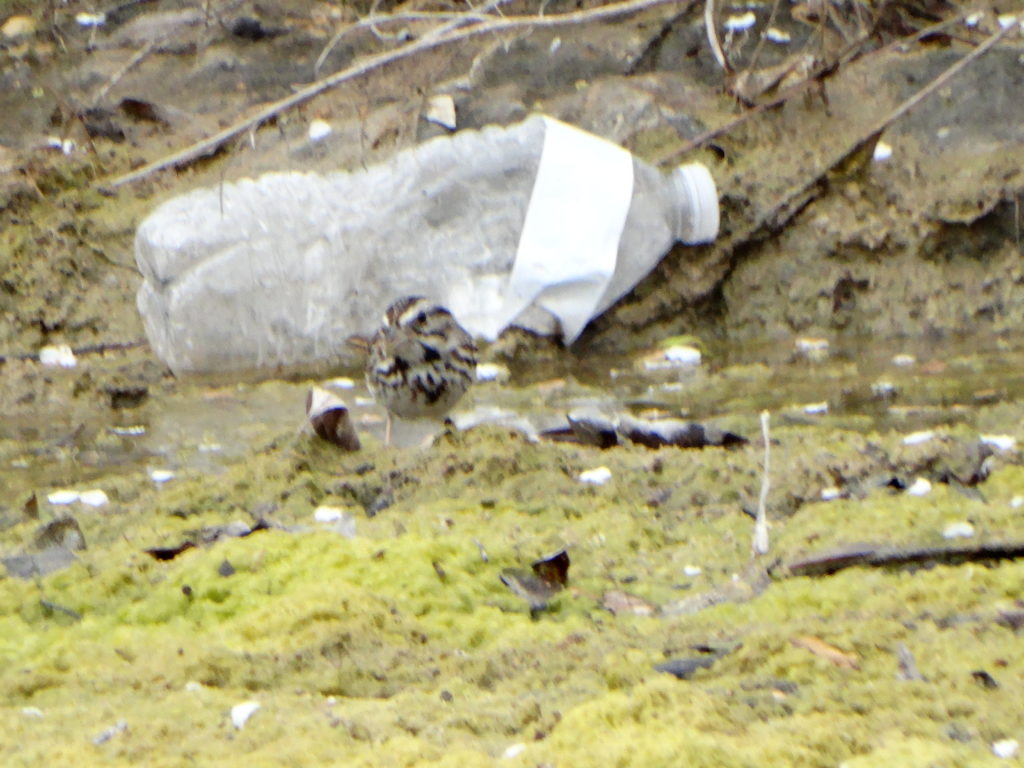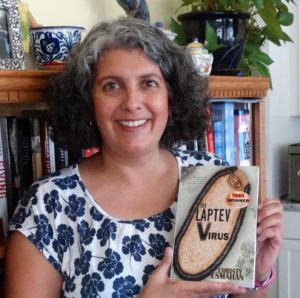
When I was writing The Cobra Effect, which is about #plastic pollution, I wrote a series of vignettes to present some ideas of how we sometimes unconsciously/unintentionally contribute to the problem of plastic pollution in the ocean. My original plan was to put one of these little stories at the start of each chapter, but my editor said that they made the book too long and distracted from the plot. I’m sure she was right, but nonetheless, I feel these snippets are important, so I’ve decided to publish one of them every once in a while. Here’s the third one:
Shelley and Megan were up early, meeting in the chilly pre-dawn darkness. It was the day they had been anticipating for months: the marathon.
As the sun peeked hesitantly through the morning fog, they joined the growing throng of runners, bouncing, stretching and calming nerves before the run.
Before they knew it, the whistle sounded and the race began. At first there were so many people that it was difficult to feel comfortable, all those elbows and knees, but as the miles eased past, the two friends found their stride and their long legs settled into an easy rhythm. Three miles, four, seven, ten, all passed with no problems.
As they ran, they gratefully accepted plastic cups half filled with water, handed to them by marathon volunteers. The girls quickly slurped them down, and kept running.
At fifteen miles they saw the Elvis impersonator holding up a sign (“ONLY 11 MORE MILES TO GO!”) and they laughed, perhaps a bit nervously. Eleven more miles. They could do it, right?
At nineteen miles Shelley’s right leg began to cramp badly. She had been ignoring it for a while, but now she slowed her pace and Megan passed her by. As she gritted her teeth and tried to force her leg to cooperate, searing pain ran down the side of her calf and up her thigh. She stepped off to the side of the road to massage her painful muscles.
A young volunteer ran up and handed Shelley another cup of water which she greedily accepted. As she stretched and kicked a bit, the pain throbbed again, worse than before. Sullenly, she sat down and absently noticed the clumps of Solo cups blowing and rolling into the street gutters.
After a moment a shadow fell over her and she looked up to see Megan’s sweaty face.
“There you are,” Megan exclaimed.
“I think I’m done,” said Shelley.
“Nope, c’mon! We’ll go slower, but we’ll make it.” And with that, still panting, Megan helped Shelley back to her feet, and in another minute Shelley was able to jog on.
“Did you see,” said Shelley as they jogged along, “all those cups and water bottles on the side of the road?”
“Someone will pick them up,” said Megan.
And someone did—many someones. Volunteers hauling black plastic bags scooped up the assorted trash that lined the roads where the runners had trod and their friends and families had stood cheering. But not before the bayou had swallowed quite a few of the discarded vessels, sending them bobbing on their way down into the gulf.
With Megan’s coaxing, Shelley finished the race. But, hundreds of years after this marathon is forgotten, those plastic water bottles and cups will still be floating in the ocean, poisoning aquatic life.


